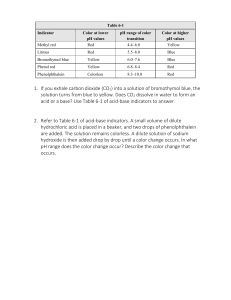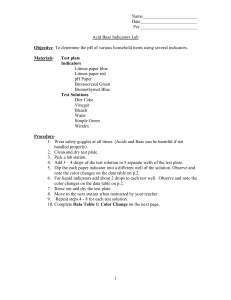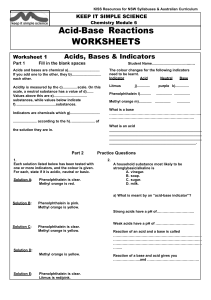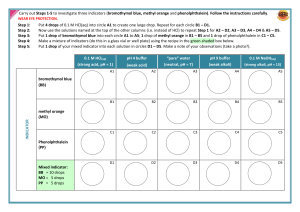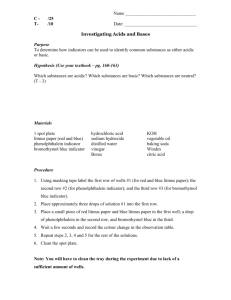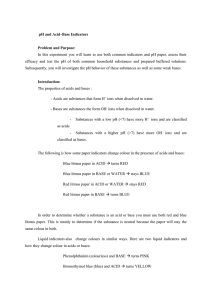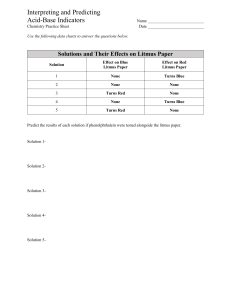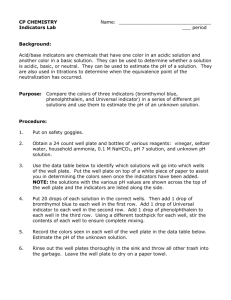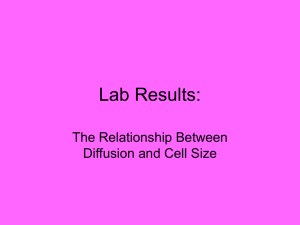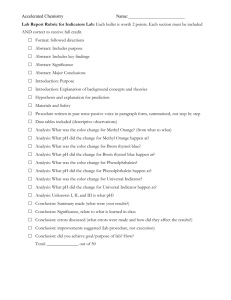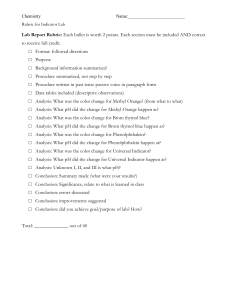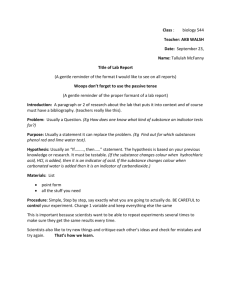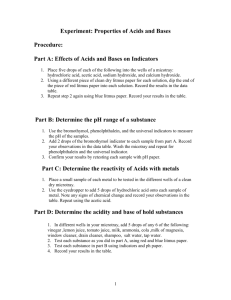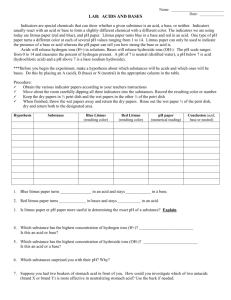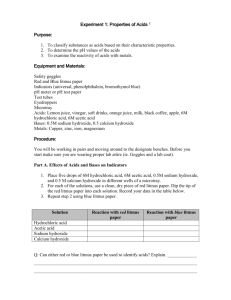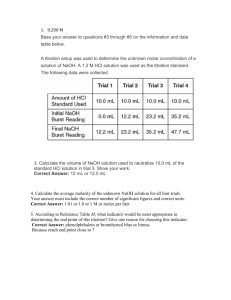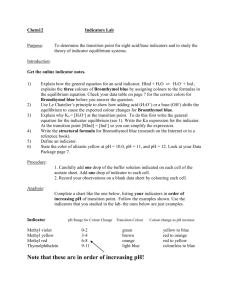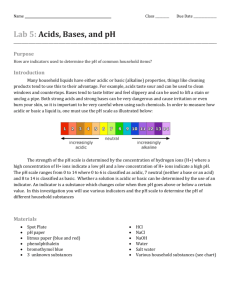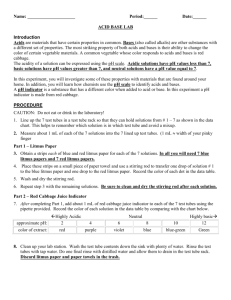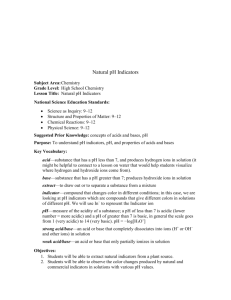Acid Base Indicators Lab
advertisement
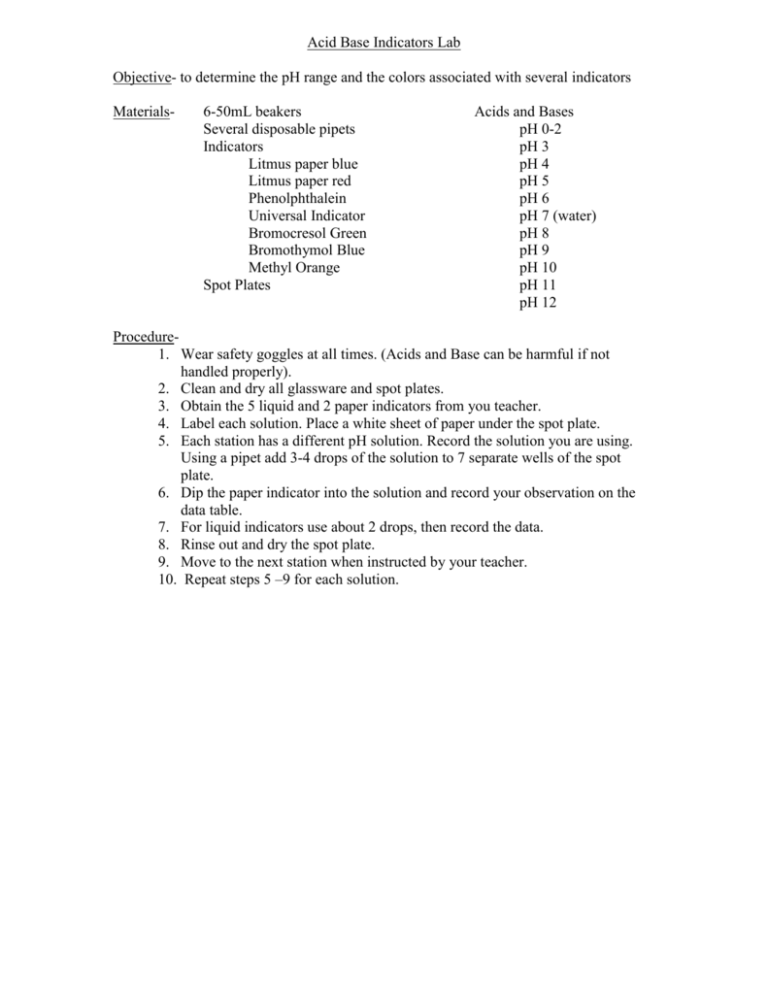
Acid Base Indicators Lab Objective- to determine the pH range and the colors associated with several indicators Materials- 6-50mL beakers Several disposable pipets Indicators Litmus paper blue Litmus paper red Phenolphthalein Universal Indicator Bromocresol Green Bromothymol Blue Methyl Orange Spot Plates Acids and Bases pH 0-2 pH 3 pH 4 pH 5 pH 6 pH 7 (water) pH 8 pH 9 pH 10 pH 11 pH 12 Procedure1. Wear safety goggles at all times. (Acids and Base can be harmful if not handled properly). 2. Clean and dry all glassware and spot plates. 3. Obtain the 5 liquid and 2 paper indicators from you teacher. 4. Label each solution. Place a white sheet of paper under the spot plate. 5. Each station has a different pH solution. Record the solution you are using. Using a pipet add 3-4 drops of the solution to 7 separate wells of the spot plate. 6. Dip the paper indicator into the solution and record your observation on the data table. 7. For liquid indicators use about 2 drops, then record the data. 8. Rinse out and dry the spot plate. 9. Move to the next station when instructed by your teacher. 10. Repeat steps 5 –9 for each solution. Data and Observations- Complete the table. pH Litmus Blue Litmus Red Universal Phenolphtalein Indicator Bromocresol Green 0-2 3 4 5 6 7 8 9 10 11 12 Color change range Questions1. Determine the pH range for the color change for each indicator. 2. What color does litmus blue turn at a pH of 3? 3. What color does methyl orange turn in a pH of 11? 4. What color does phenolphthalein turn in the presence of a base? 5. A base will turn which indicator yellow? 6. A colorless solution using phenolphthalein indicates what? Conclusion- Bromothymol Blue Methyl Orange
